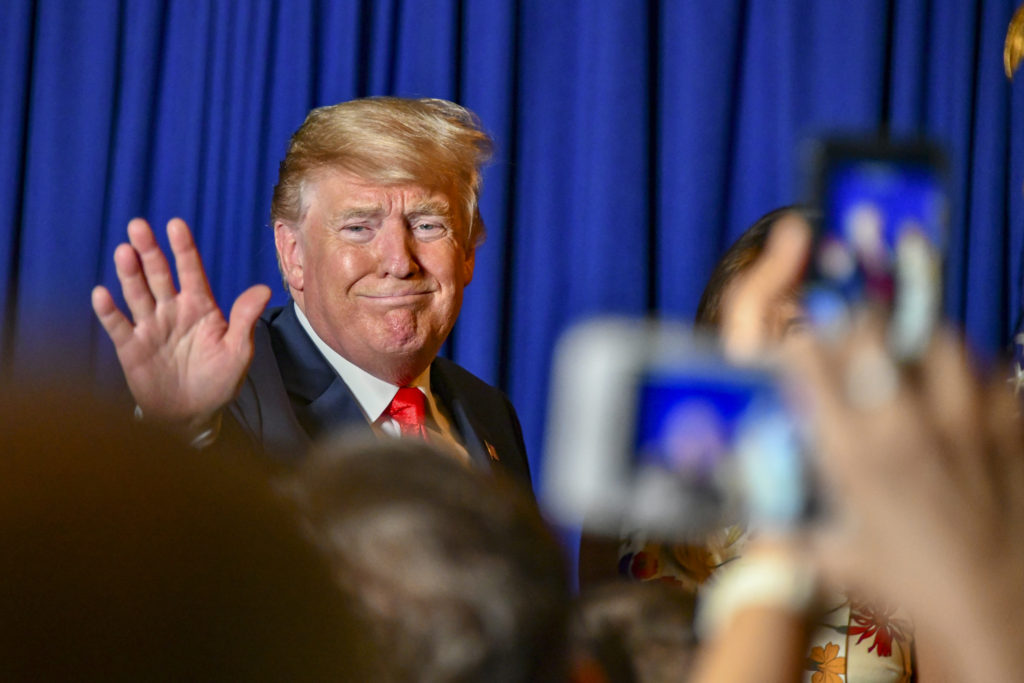After 2,800 subpoenas, 500 interviews, and 675 days of speculation, White House Special Counsel Robert Mueller concluded that President Donald Trump and his campaign neither conspired nor coordinated with Russia to interfere in the 2016 general election, as stated in a letter sent to Congress from Attorney General William Barr. Though, Mueller’s long-awaited report did not come to a conclusion on whether Trump obstructed justice, with Barr stating that the report “does not conclude that the President committed a crime, it also does not exonerate him.”
The full report was submitted to the attorney general on Friday, and Barr said he would make the main conclusions of the report clear with lawmakers in Washington. Thus far, Mueller has indicted 37 people or other entities in his investigation into Russian meddling in the 2016 election, but no additional indictments are said to be forthcoming.
On the case of Russian interference, which is divided into two parts, Barr’s letter to Congress stated the “investigation did not find that the Trump campaign or anyone associated with it conspired or coordinated with Russia in its efforts to influence the 2016 U.S. presidential election.”
The report detailed that a Russian-backed organization, the Internet Research Agency (IRA) “conduct[ed] disinformation and social media operations in the United States designed to sow social discord, eventually with the aim of interfering with the election.” Moreover, “Russian government actors successfully hacked into computers and obtained emails from persons affiliated with the Clinton campaign and Democratic Party organizations, and publicly disseminated those materials through various intermediaries, including WikiLeaks.”
The foreign indictments for the charges include 12 military intelligence agents within Russia’s GRU for conspiracy to commit computer crimes, identity theft, and money laundering; as well as 13 Russians and three affiliated companies for conspiracy to defraud the U.S. and conspiracy to commit wire and bank fraud.
The second part of Barr’s letter details the findings of obstruction of justice charges, which “addresses a number of actions by the President – most of which have been subject of public reporting – that the Special Counsel investigated as potentially raising obstruction-of-justice concerns.”
Mueller “did not draw a conclusion – one way or the other – as to whether the examined conduct constituted obstruction. Instead…the report sets out evidence on both sides of the question and leaves unresolved what the Special Counsel views as ‘difficult issues’ of law and fact concerning whether the President’s actions and intent could be viewed as obstruction,” thereby concluding that while Trump did not commit a crime, the report “‘also does not exonerate him.'”
Special Counsel Mueller, “without reaching any legal conclusions leaves it to the Attorney General to determine whether the conduct described in the report constitutes a crime.”
Barr wrote, “After reviewing the Special Counsel’s final report on these issues; consulting with [Justice] Department officials, including the Office of Legal Counsel; and applying the principles of federal prosecution that guide our charging decisions, Deputy Attorney General Rod Rosenstein and I have concluded that the evidence developed…is not sufficient to establish that the President committed an obstruction-of-justice offense.”
“Our determination was made without regard to, and is not based on, the constitutional considerations that surround the indictment and criminal prosecution of a sitting president,” he added.
“General speaking,” the attorney general explained, “to obtain and sustain an obstruction conviction, the government would need to prove beyond a reasonable doubt that a person, acting with corrupt content, engaged in obstructive conduct with a sufficient nexus to a pending or contemplated proceeding,” which Barr stated the “report identifies no actions” the president undertook.
Barr also reiterated in his letter that he is “mindful of the public interest” in the special counsel’s report, and his “goal and intent is to release as much of the Special Counsel’s report as I can consistent with applicable law, regulations, and Departmental policies.”
The summary leaves many open questions that could be answered by a full airing of the report in a congressional hearing, which will be the main focus of Democratic lawmakers, and is likely just the beginning of such.
Nevertheless, Republicans are also gunning to having the origins of the investigation in the public purview as well, but for starkly different reasons.
The GOP and President Trump will use the findings of the report, teamed with Democrats’ mission to oppose the president by any means necessary, in their argument for reelection and ammunition against the “anti-Trump” media.
Axios reports that leader of the conservative House Freedom Caucus Congressman Mark Meadows (NC-11) said, “The public deserves to see the interviews, documents, and intelligence that ‘justified’ this investigation in the first place.”
In the 18-month run-up to the 2020 elections, with Trump just less than categorically deemed a victim in the investigation, he will undoubtedly use it to attack the media’s actions over the last two years of his presidency. This will set up yet another round of his war with Democrats and most of the American media, which he has won, both dramatically and consequentially.

